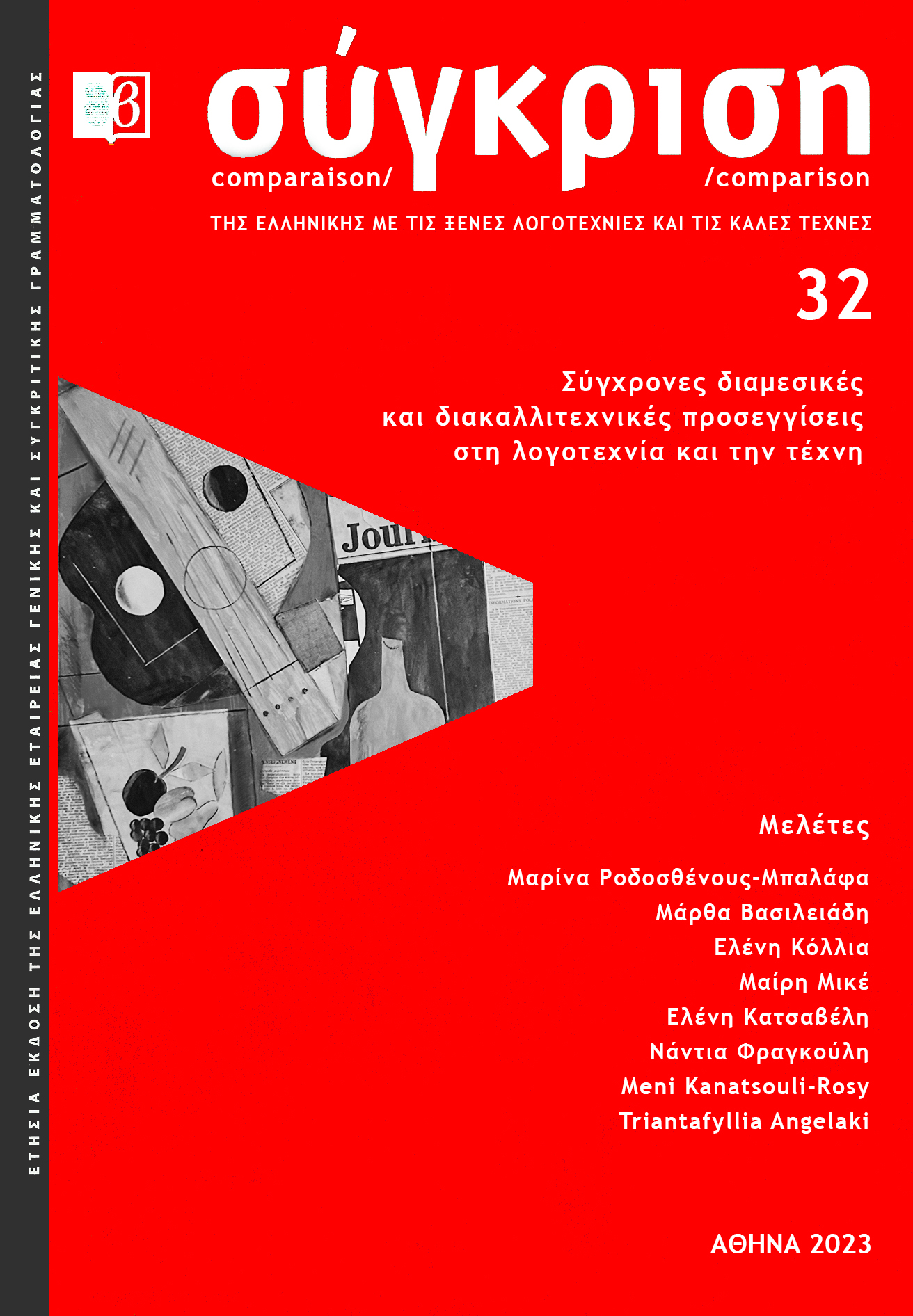Από την τέχνη του κινηματογράφου στην πεζογραφία του Γιάννη Σκαρίμπα
Abstract
In literary and cultural studies, the relation between literature and cinema have been widely discussed since the beginning of the twentieth century. The relevant studies mainly focus on writers that direct movies, that adapt their works for movies or that write scripts. Fewer studies explore the opposite direction, meaning the effect that movies have on prose works or on poetry. The dialogue between cinema and literature can also be seen in the prose works of Yannis Skarimbas and there are few studies that have commented on that. However, according to critics, the image is a crucial part of the plot in Skarimbas’ prose works. Despite the fact that the literary works, belonging both to Greek and to other European literatures, that have inspired Skarimbas have been discussed, the way other arts, like the cinema, have affected his work, remain an open question. Skarimbas’ strong interest in the cinematic art is brought to the fore by the way this form of art becomes a theme of his literary work. The influence of the movies of his time are examined and, in particular the references to the art of cinema through a particular name, as well as the way the director Ernst Lubitsch is correlated with Skarimbas’ prose works.
Article Details
- How to Cite
-
Κόλλια Ε. (2023). Από την τέχνη του κινηματογράφου στην πεζογραφία του Γιάννη Σκαρίμπα. Comparison, 32, 271–278. Retrieved from https://ejournals.epublishing.ekt.gr/index.php/sygkrisi/article/view/34632
- Issue
- Vol. 32 (2023)
- Section
- Articles

This work is licensed under a Creative Commons Attribution-NonCommercial-ShareAlike 4.0 International License.
Authors who publish with this journal agree to the following terms:
- Authors retain copyright and grant the journal right of first publication with the work simultaneously licensed under a Creative Commons Attribution Non-Commercial License that allows others to share the work with an acknowledgement of the work's authorship and initial publication in this journal.
- Authors are able to enter into separate, additional contractual arrangements for the non-exclusive distribution of the journal's published version of the work (e.g. post it to an institutional repository or publish it in a book), with an acknowledgement of its initial publication in this journal.
- Authors are permitted and encouraged to post their work online (preferably in institutional repositories or on their website) prior to and during the submission process, as it can lead to productive exchanges, as well as earlier and greater citation of published work (See The Effect of Open Access).



